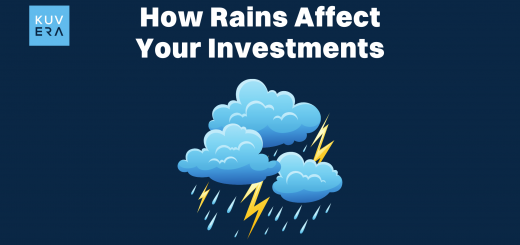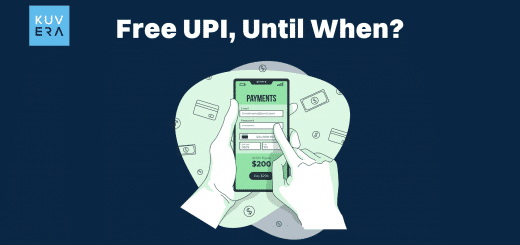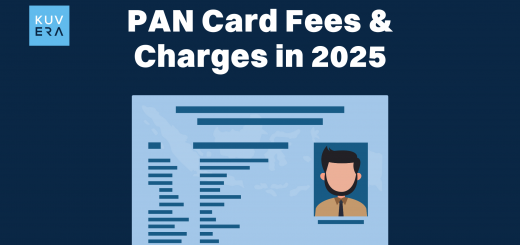Exchange traded funds or ETFs were introduced in India in 2001. These are low-cost investment solutions that usually replicate the performance of stock market indices like BSE Sensex or Nifty 50. ETFs are unique investments that combine the simplicity of trading a single stock with a diversified portfolio of mutual funds. They are an attractive investment option for those with limited expertise in the financial markets.
Now that we understand the meaning of exchange traded funds, let us learn how they work, their various types and the benefits of investing in them.
How Does an ETF Work?
ETFs invest in various asset classes such as stocks, bonds, currencies, commodities or a mix of these options to offer the benefit of diversification. They are pooled investment vehicles, like mutual funds, with similar structure, management, and regulations. However, unlike regular mutual funds, you can trade ETF units on the stock exchange.
ETFs track an underlying index like index funds. Unlike actively-managed mutual funds that try to outperform their benchmark index, exchange traded funds try replicating the performance of the underlying benchmark. So, when you buy units of an ETF, you invest in a portfolio that delivers the return and yield of its native index.
People can buy and sell units of ETFs through registered brokers of any major stock exchange during market hours. The NAV (Net Asset Value) of an ETF depends on the price of individual assets constituting the portfolio.
ETFs usually offer high liquidity and involve lower charges than actively-managed mutual fund schemes. Like other stocks to buy, investors can short sell ETFs, purchase units on margin or choose to hold them for the long term. These make it ideal for various investors.
Types of Exchange Traded Funds in India
The following are some of the different types of ETFs you can invest in to fulfil your financial goals:
| Type of ETF | Features |
| Index ETFs | Index ETFs are the most common ETF offerings; they allow investors to get returns based on an underlying market index. These ETFs track and replicate the performance of indices like Sensex, Nifty 50, Nifty 100, etc. |
| Commodity ETFs | In India, gold and silver ETFs are the only commodity ETFs available. Investors can buy gold ETFs instead of physical gold. These ETFs track the performance of gold bullion and carry the same value as 24 karat gold. Silver ETFs are an alternative investment to gold for portfolio diversification. |
| Bond ETFs | These ETFs provide investors exposure to debt instruments like government bonds and debentures. Bond ETFs invest in a portfolio of bonds and allow investors to mitigate their investment risks. They can offer low-risk returns and flexibility of equity investments. |
| International ETFs | International exchange traded funds allow Indian investors to get exposure to top foreign companies. These try to replicate the performance of global markets or country-specific indices like the NASDAQ Composite. |
| Currency ETFs | These ETFs allow investors to participate in global currency transactions without buying a specific currency. Currency ETFs invest in a specific currency or a pool of currencies and track their price movements. |
| Sector ETFs | Sectoral/thematic ETFs invest primarily in securities from a specific sector or industry. They try to replicate the performance of a specific sector. Kotak IT ETF and Axis Banking ETF are two examples of sectoral ETFs. |
| Liquid ETFs | These invest in a basket of short-term government securities and money market instruments. The investment objective of such ETFs is to minimize price risks while maintaining liquidity. |
Who Should Invest in ETFs?
The following investors may want to invest in exchange traded funds.
- Investors with limited time to analyse stocks: ETFs can be a suitable alternative to investing in individual stocks for investors with limited time, investment corpus or financial knowledge.
- Those looking for portfolio diversification: ETFs are useful for investors looking for prudent asset allocation in their investments. This investment vehicle exposes individuals to different asset classes like debt, equity, and commodities.
- Investors looking for focused exposure: Investors looking for focused exposure to certain asset classes, geographical regions, industries or currencies can invest in ETFs. They do not have to worry about picking individual stocks and can invest at reasonable costs.
Advantages of Investing in Exchange Traded Funds
Given below are some of the benefits of ETF investments:
- Portfolio diversification: Diversifying asset allocation is difficult for most individual investors due to the cost and means required. You can use the best ETFs to get exposure to a broader segment of the equity market, and diversify your portfolio to reduce financial risk.
- High liquidity: ETFs are a flexible investment option offering a high degree of liquidity as you can buy or sell the units on stock exchanges with a real-time settlement. Funds with higher trading frequency are more liquidity as you can easily find a buyer or seller.
- Mitigates managerial risks: Unlike actively managed funds, fund managers of exchange-traded funds only make minor and periodic adjustments as per the changes taking place in the underlying benchmark index. As there is no continual change, it mitigates managerial risks that come with active mutual funds.
- Cost-efficient: As an ETF tracks an index without requiring much effort from fund managers, it comes with a low expense ratio. Thus, they are a suitable option for individuals seeking a low-cost investment option.
- High transparency: For ETFs, you can get information about a fund’s holdings and NAV daily. So, you can track changes in its value instantly and shift your investments in case of underperformance.
Disadvantages of Investing in Exchange Traded Funds
The following are some of the limitations of investing in ETFs:
- A Systematic Investment Plan (SIP) is not available for ETFs, and so investors cannot get the benefit of rupee cost averaging. Moreover, ETFs do not offer growth and dividend options, unlike other mutual funds.
- Some ETFs are niche and, thus, thinly traded. For such ETFs, investors can come across a wide gap between bid and ask prices, making it difficult to trade with them.
- One has to open a Demat account and pay brokerage fees to buy and sell ETF units.
Things to Consider before Investing in Exchange Traded Funds
Given are some important points to consider when investing in ETFs:
- Underlying Risks: Since ETFs have underlying assets like stocks, bonds and commodities, they come with market-related risks associated with such assets. They carry systematic risks like any equity investment. However, they do not carry unsystematic risks as the fund manager merely tracks a particular market index.
- Tracking error: The difference between an ETF’s returns and the returns of the benchmark index is called tracking error. One might want to consider the tracking error of an ETF before purchasing its units.
- Costs involved: ETFs typically carry a lower expense ratio than active funds, which allows them to generate higher alpha in the long term. However, there are other costs to consider for ETFs, including brokerage for transactions, STT (Securities Transaction Tax), etc.
- Investment strategies: On account of the similarities between ETFs and stocks, you can use the same investment strategies when trading stocks. Traders can use swing trading, which involves buying low and selling high or sector rotation, which involves investing across different sectors.
- Investment horizon: Due to their high liquidity, ETFs are preferred by investors with short term and medium-term investment horizons. They are also suitable for long-term investors looking to ‘buy and hold’.
- Minimum investment amount: Unlike mutual funds, which have usually have a minimum investment amount of Rs. 100, investors can buy a single share of an ETF. However, it does not offer easy investments via SIPs.
How Can I Invest in ETFs?
Exchange traded fund units are listed and traded on stock exchanges like any other stock. Their trading price changes throughout the day as buyers and sellers drive their supply and demand. The performance of the underlying assets determines their NAV, which fluctuates throughout the day.
Every ETF has a unique ISIN number, and you can hold them electronically in your Demat account just like any stock. You can directly place an order via your stockbroker’s online platform to buy ETF units. Once you have successfully purchased the units, they will be credited to your Demat account in T+2 days. You can also sell them using your trading interface in a similar manner. >
Final Word
Exchange traded funds are similar to index funds, but the units are traded like stocks. They comprise a portfolio of equity, bonds or other assets and track a specific index. You should carefully weigh various factors like past returns, your risk appetite and investment goals to find the best ETFs for investment.
Frequently Asked Questions
-
What are the taxation rules for index ETFs and sectoral ETFs?
Index ETFs and sectoral ETFs are taxed like equity funds as they invest mostly in equities. If you hold units of these funds for less than 12 months, short-term capital gains (STCG) tax will be applicable at a flat rate of 15%. For a holding period of over 12 months, long-term capital gains (LTCG) tax will be applicable at a rate of 10% over returns of Rs. 1 lakh.
-
What taxations are applicable for gold ETFs and international ETFs?
Gold ETFs and international ETFs have the same taxation rules as non-equity funds. STCG tax will be applicable for a holding period of 36 months. Returns from investments will be added to your taxable income and taxed as per applicable tax slabs. LTCG tax is applicable at a flat rate of 20% after indexation benefit if the holding period is over 3 years.
-
How do gold ETFs work?
Gold ETFs aim to track the domestic price of physical gold bullion. Each unit of a gold ETF represents 1 gram of gold-backed by physical gold of very high quality. These are traded on both NSE and BSE like shares of any other listed company. Gold ETFs can be bought and sold electronically like any other stock.
-
What are the differences between index funds and ETFs?
Although both index funds and ETFs are passive investment vehicles and track an index, they work in different ways. The NAV of index funds is based on the prices at the close of a trading day, whereas ETFs’ prices change throughout the day. ETFs are available only on stock exchanges, and investors cannot invest in them via a SIP.
Interested in how we think about the markets?
Read more: Zen And The Art Of Investing
Watch/hear on YouTube:
Start investing through a platform that brings goal planning and investing to your fingertips. Visit kuvera.in to discover Direct Plans and Fixed Deposits and start investing today.
#MutualFundSahiHai #KuveraSabseSahiHai!











